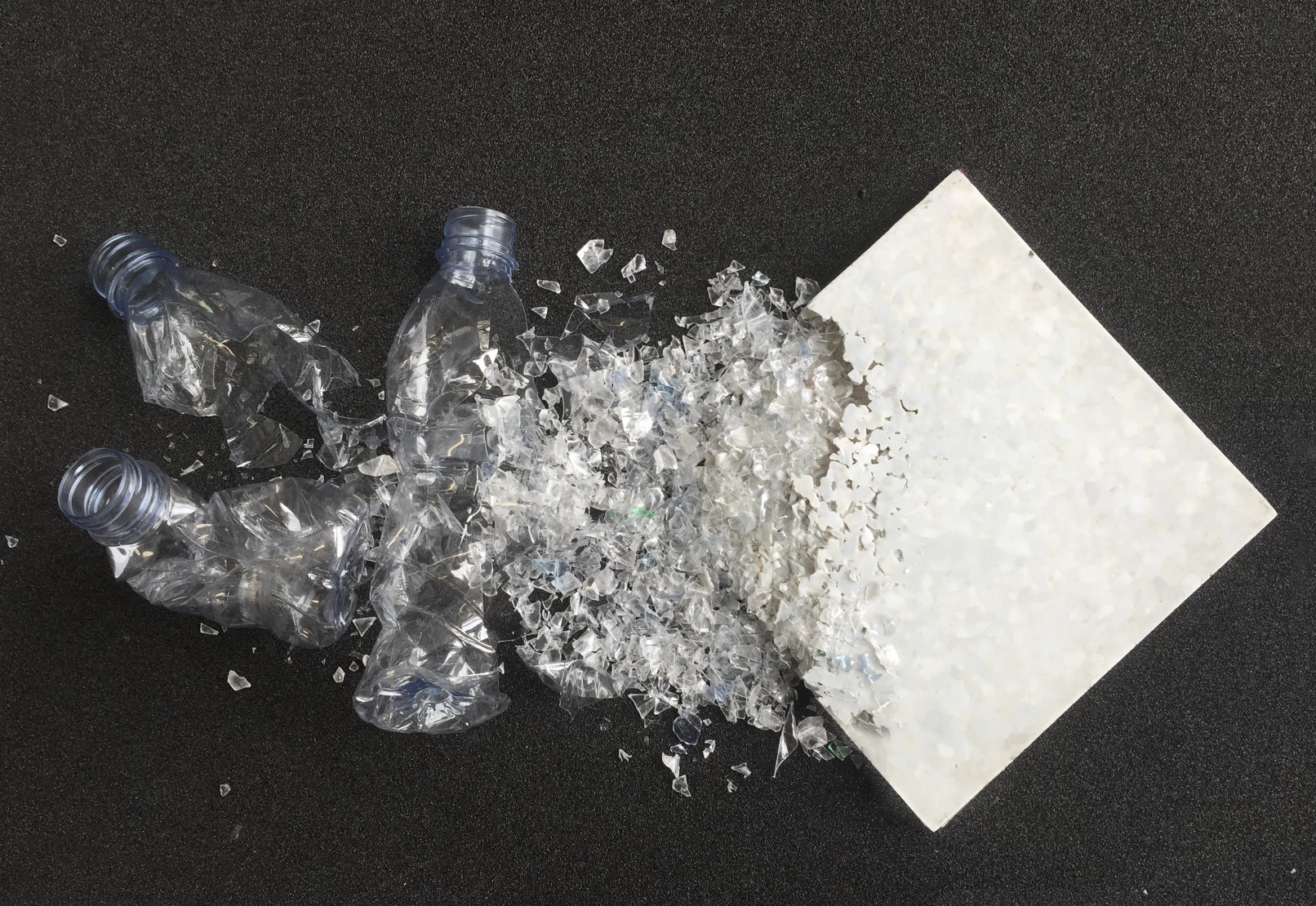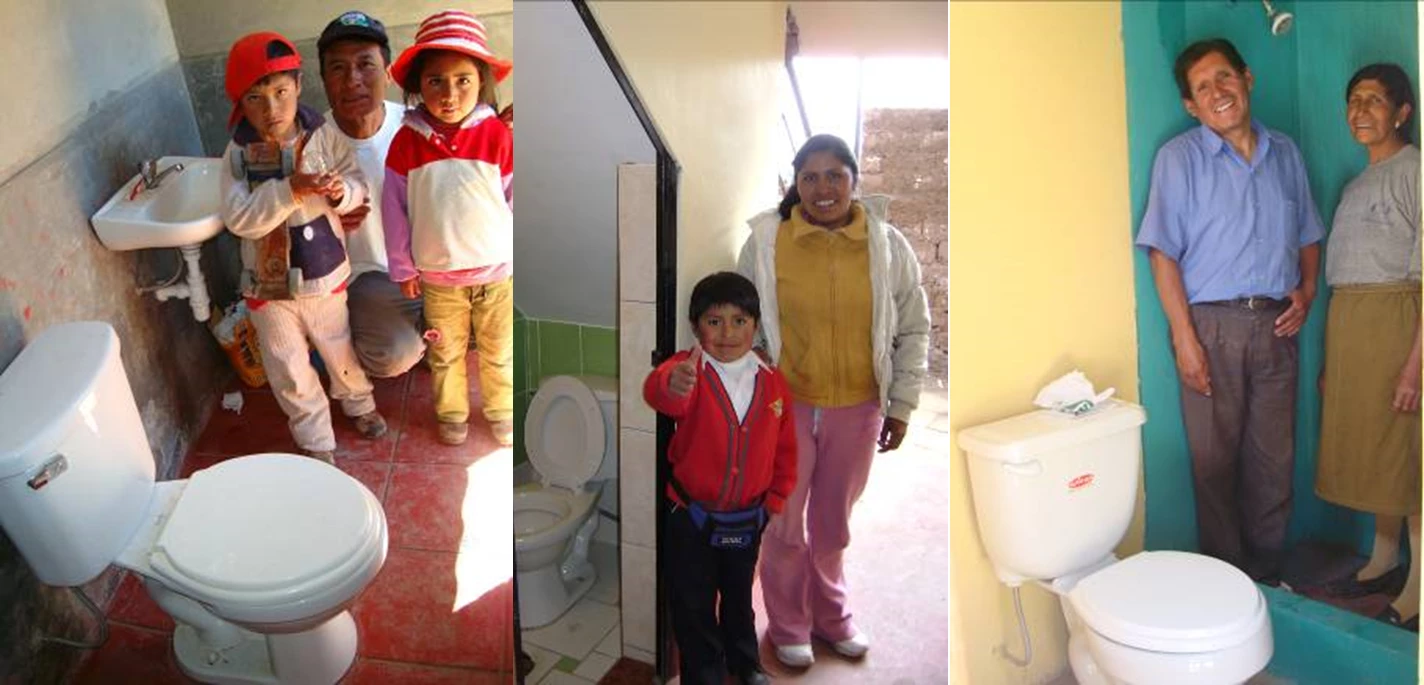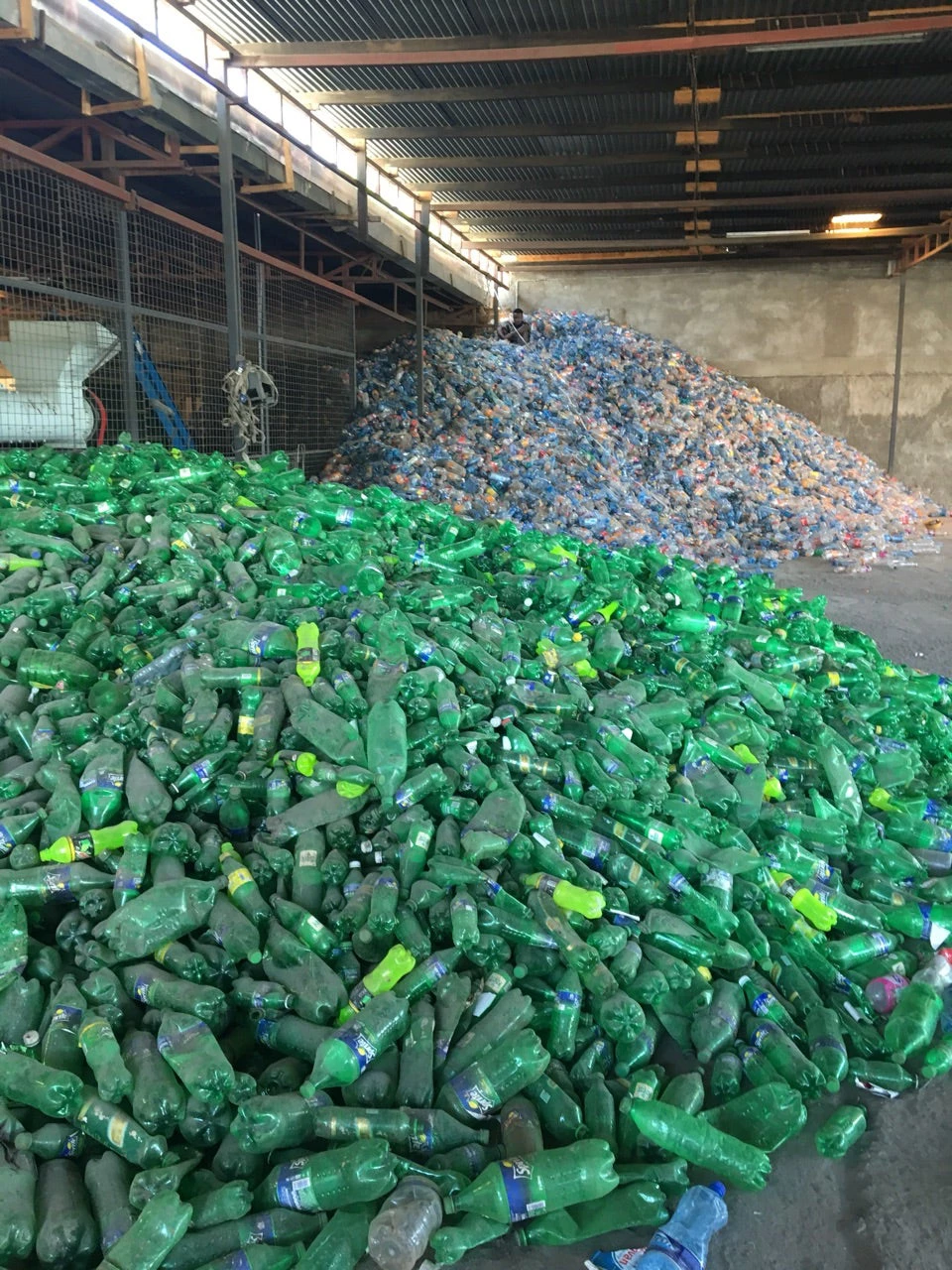“From plastic waste to building materials,” a partnership supported by the World Bank Group gathering six private sector frontrunners in Kenya, is testing exactly this.

The plastic waste challenge in Kenya
Plastic waste is a global challenge. National Geographic’s latest publication ‘Planet or Plastic?’ illustrates the complexity of the challenge.
Before a ban on plastics bags issued by the Kenyan government in 2017, 24 million plastics bags were used every month in the country. Each year Nairobi generates over 500,000 tons of plastic waste. Based on industry estimations, only 15% of this waste is recycled and, ultimately, only 3% is regenerated into value-added products.
The current plastic waste value chain in Nairobi faces many challenges related to:
- Technology: There’s a lack of large-scale segregation facilities;
- Quality: The quality of the recycled flakes is often too low for manufacturing;
- Profitability: Plastic flakes are often exported where largest profit margins are generated;
- Finance: The margins throughout the value chain are low;
- Organization: There are limited coordination and alignment between value chain players.
A promising demand-based solution
A growing number of companies in Kenya are scaling business opportunities in green sectors. Business-to-business partnerships, joint ventures, or franchising can offer a solution to value chain challenges and help the diffusion into the Kenyan market of climate technologies and innovative business models that have been proven elsewhere in the world. Most attempts at replicating such technologies get stuck in a prototype phase unless support is provided from intermediaries able to guide companies through the process of partnering and building a collective business case.
The Climate Technology Business Model Diffusion Program, a World Bank Group initiative implemented by Enclude and GrowthAfrica in Kenya, is helping green companies in developing countries find their “business match.” The goal is to facilitate the adoption of validated products, services, and operating models by fostering collaboration with international businesses.
Supported by the project team, a group of businesses and associations have put their minds together to rethink the plastic recycling value chain in Nairobi.
A number of co-creation workshops including a core group of mature companies focused on mapping the value chain, building a collective business case, and identifying new product solutions. Facilitated by the project team, these working groups resulted in the joint development of a pilot “From plastic waste to construction material.”
“These sessions created a breakthrough in the plastic waste sector in Nairobi, which consists of actors who have never collaborated before” – Mr. Jan Larsen, CEO of Ramco Plexus.

- Aligning and improving the organization and output of the whole value chain;
- Connecting the plastic recycling chain to the construction market, which would be able to absorb large volumes of manufactured plastic waste products (e.g. affordable building materials) if manufactured with the right quality, price, and design;
- Engaging foreign companies that can enhance the performance of the whole sector by introducing an innovative value-adding design, technology and/or business model, for which formal letters of intent have been signed;
- Developing business cases for the different partners in the value chain.

Continuing the success of climate technology diffusion
The enthusiasm of the companies in the group has led to quick results: within only three months, partnership agreements were signed, an action plan was formulated, and the first business cases for waste-based construction material were developed. Moreover, several large potential clients were engaged, including the National Housing Corporation and the Kenyan Association of Architects.
The group is now working on identifying a location to develop prototypes and showrooms to demonstrate affordable building products manufactured from locally collected plastic bottles. In addition, several meetings took place to discuss the most feasible business model and set up talks with potential investors.
“For CGK, the collaboration with the World Bank project team served as an endorsement of our mission” – Mrs. Chakrabarti of Clean Green Kenya (CGK).
The follow-on funding and facilitation of activities are led by Clean Green Kenya (CGK), a recently established industry-driven initiative that aims to enhance the performance of the plastic waste sector. With the World Bank Group’s support, the team from Enclude and GrowthAfrica will continue working with both CGK and the companies in showcasing the success of these private sector-driven value chain activities.
This activity was supported by the Climate Technology Program of the World Bank Group. The program is sponsored by the government of the United Kingdom, Australia’s Department of Foreign Affairs and Trade (Australian Aid), Denmark’s Ministry of Foreign Affairs (DANIDA), Norway’s Ministry of Foreign Affairs, and the Netherlands’ Ministry of Foreign Affairs.


Join the Conversation